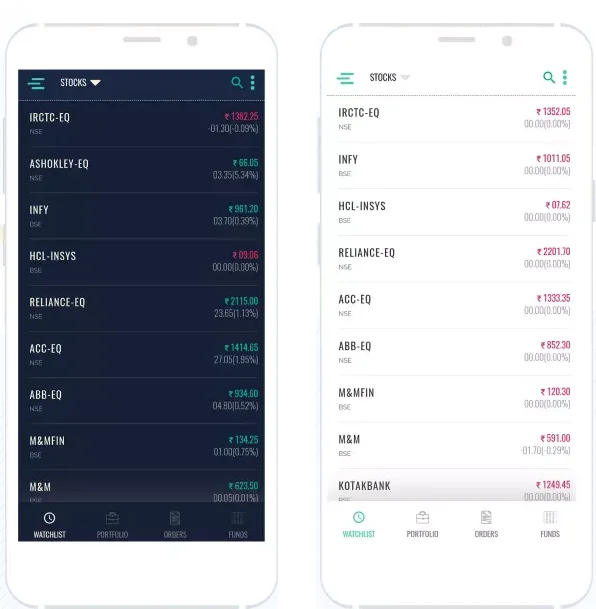All About IPOs

An Initial Public Offer (IPO) has for a long time been a preferred route for new investors to participate in the Indian equity markets. Of the many IPOs over the years one that comes to mind is 2003, Maruti Suzuki IPO that fueled retail investor interest. It created a new generation of equity investors.
Even in the recent past, a host of IPOs have seen spectacular investor interest and wealth generation. Not so by some others.
However, given the surge in the markets after the fall due to the pandemic, a lot of new investors have entered the equity markets. New Demat accounts opened have doubled in 3 years.
The IPO market is expected to be vibrant going forward with the Life Insurance Corporation of India (LIC) also slated to tap the IPO market.
So, what is an IPO, and how does one participate in the process
An IPO is an offer by a company to sell its shares to investors for the first time and subsequently list those shares on the stock exchanges to be traded.
Companies may go for an IPO either to raise fresh capital to fund their growth plans like expansions etc or the promoters may offer some of their own shares to investors to increase the company’s investor base and list the shares. IPO is also be used to monetise investments of early private investors.
Both retail and institutional investors who believe in the company’s growth story buy these shares. The price at which the shares are traded on the stock market determines the new value of the company.
How can one participate in an IPO
The prerequisites
There are largely two prerequisites for applying for an IPO.
The Demat account where the shares will be credited and held electronically in the event of a successful allotment. This is mandatory since physical shares have been done away with.
Bank account through which you can fund the IPO application. Currently, IPO funding is done through a process called ASBA (Applications Supported by Blocked Amount). Through this process, the amount you invest is blocked in your bank account but not actually debited from it.
The mode of application
One can apply in the public offer Online or via the Offline mode.
Online
Applying online is one of the most convenient ways as it eliminates the need for any form filling or paper work. This provided you have an online trading account with your broker who enables online investment in IPOs.
The steps across online brokers could vary but, in most cases, you simply log in to your account and go to the IPO section. The next step is to identify the IPO you wish to apply for. Choose the lot size or its multiples (which is normally fixed). Enter the price at which you want to apply. Make sure you have enough money in your account to fund it and proceed with the application.
Post the application you need to wait for 7-10 days for the allotment process to be completed and if allotted receive the shares in your Demat account.
Offline process
In the offline process, you need to fill out forms with your details like PAN number, Demat account number, the number of shares you want to apply for. The lot size and the application price. This form then has to be submitted to designated collection centers called Self Certified Syndicate Banks (SCSB). Once submitted the bank will upload the details of the application to the bidding platform.
In both cases, the onus is on you to fill in the details correctly.
Some common questions and terms in an IPO
Pricing of an IPO and how is it arrived at
In India, we follow the free pricing mechanism of deciding the price at which shares are allotted to the public. No regulator or other body plays a part in the pricing. Before going public the company appoints a merchant banker as an advisor who does the entire process on behalf of the company. The merchant banker based on the company’s financial and other due diligence helps the company price its IPO. The rationale is laid out in the public offer document.
Pricing can also be influenced by market conditions and perceived demand for the company’s shares.
The company can decide to either issue shares at a fixed price or through a book building route. In a fixed price issue, the price is predetermined and the public subscribes to that price.
In a book-built issue, investors are given a price band and a range within which they can place their bids. Basis the demand at a given price the issue is determined.
IPO subscription
There are three scenarios after the company’s IPO is over. Its IPO can be undersubscribed, fully subscribed, or oversubscribed. These are all a function of demand.
Undersubscribed – SEBI mandates at least 90 percent subscription of an IPO for the company to list on the exchanges. If a company fails to get this subscription the issue is said to be undersubscribed and the money returned to investors.
Fully subscribed – the company has received its intended level of subscription and is in a position to allot shares to each applicant.
Oversubscription – IPO has seen an overwhelming response with the demand for its share outstripping the supply. In such a scenario not all applicants will receive a share in the IPO. Shares will be allotted via a lottery system. Luck plays a part in this scenario.
Types of IPO Investors
Qualified Institutional Buyers (QIB), are large investors mutual funds, financial institutions, and foreign portfolio, investors. Normally, 50 percent of the issue is reserved for QIBs.
Retail Individual Investors, make up 35 percent of the issue size these include NRIs. This segment can invest only up to Rs 2 lakh in an IPO.
Non-institutional Investors are largely the same as the retail investors but can invest more than 2 lakhs in the issue. But only 15 percent of the issue is reserved for this segment which can reduce the possibility of getting an allotment.
And lastly, there are the anchor investors who are QIBs whose application is in excess of Rs 10 crore and invest in an IPO before it opens to the public
And finally, what do I do after I get an allotment?
Once the IPO process is complete the shares are listed on the stock market. If you have got an allotment you can decide to sell the shares on the listing. Investors who have missed out on an allotment can now buy these shares in the secondary market. However, for both cases, you will now need a trading account.
Points to keep in mind
- Read the offer document before investing
- Understand the company and its business
- See if the financials justify the valuations
- Don’t just get pulled in by the hype surrounding an IPO
Frequently Asked Questions (FAQs)
What is an IPO?
An IPO is an offer by a company to sell its shares to investors for the first time and subsequently list those shares on the stock exchanges to be traded.
What are the reasons for an IPO?
Companies may go for an IPO either to raise fresh capital to fund their growth plans like expansions etc or the promoters may offer some of their own shares to investors to increase the company’s investor base and list the shares. IPO is also be used to monetise investments of early private investors.
How are IPOs priced?
In India, we follow the free pricing mechanism of deciding the price at which shares are allotted to the public. No regulator or other body plays a part in the pricing.
Before going public the company appoints a merchant banker as an advisor who does the entire process on behalf of the company. The merchant banker based on the company’s financial and other due diligence helps the company price its IPO. The rationale is laid out in the public offer document.
Pricing can also be influenced by market conditions and perceived demand for the company’s shares.
What are the different types of IPO investors?
Qualified Institutional Buyers (QIB), are large investors mutual funds, financial institutions, and foreign portfolio, investors. Retail Individual Investors, can invest only up to Rs 2 lakh in an IPO and account for nearly one-third of an IPO.
Non-institutional Investors are largely the same as the retail investors but can invest more than 2 lakhs in the issue. And lastly, there are the anchor investors who are QIBs whose application is in excess of Rs 10 crore and invest in an IPO before it opens to the public.
Who can participate in an IPO?
Anyone who meets these two prerequisites can apply for an IPO. The investor should have a Demat account where the shares will be credited and held electronically in the event of a successful allotment. Second, the bank account through which you can fund the IPO application. Currently, IPO funding is done through a process called ASBA (Applications Supported by Blocked Amount). Through this process, the amount you invest is blocked in your bank account but not actually debited from it.


How Would You Rate This Chapter?
Next
Comments (0)